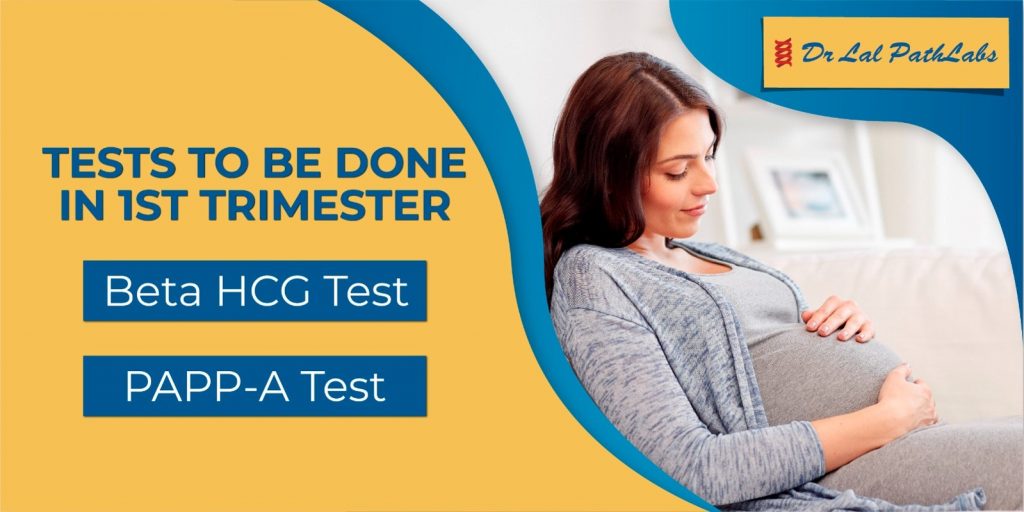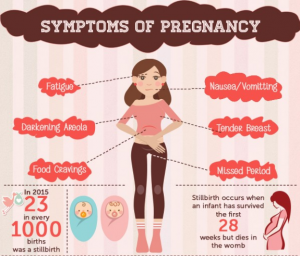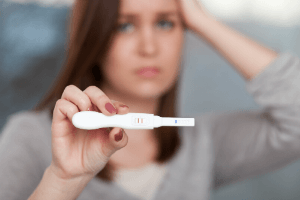Tests Done in First Trimester of Pregnancy

The first pregnancy trimester spans from week 1 to week 12, starting from the first day of the last menstrual period. It is a remarkable period of transformation and development for the expectant mother and the growing fetus.
There are several tests done in the first trimester of pregnancy to safeguard the health of the mother and the unborn baby. This prenatal testing detects potential risks, provides insights into the pregnancy’s progress, and enables timely intervention if required.
This article will discuss the tests done during the first pregnancy trimester and the importance of these tests.
Tests done in the first trimester of pregnancy
Some of the tests that are commonly conducted during the first trimester of pregnancy include:
- Pregnancy test
One of the initial steps when suspecting pregnancy is to perform a home pregnancy test. If the result is positive, it’s essential to consult a healthcare provider for confirmation through a blood test. The blood test measures the hormone hCG levels produced by the placenta after implantation.
- Urine tests
A urine test examines sugars, proteins, ketones, and bacteria levels. It helps detect bladder/kidney infections, diabetes, dehydration, and preeclampsia. High sugar levels might suggest gestational diabetes, common around the 20th week of pregnancy. This prenatal testing aids in timely intervention and proper management for a healthier pregnancy.
- Rh factor and antibody testing
The protein, Rh factor is present on the surface of red blood cells. If a pregnant woman is Rh-negative and the child’s father is Rh-positive, there’s a possibility of Rh incompatibility. Rh incompatibility can lead to hemolytic disease in the newborn (HDN).
Rh factor and antibody testing are crucial in the first trimester of pregnancy to determine whether Rh sensitisation has occurred, allowing for timely interventions if necessary.
- Blood tests
A comprehensive blood test panel is often recommended in the first trimester of pregnancy. This includes a complete blood count, blood type and Rh factor testing, and tests for blood sugar levels.
These prenatal diagnostic tests can help identify conditions like anemia, blood disorders, and potential complications related to blood compatibility between the mother and the baby.
- Thyroid function tests
Thyroid hormone imbalances can profoundly impact your baby’s growth and brain development. That’s why thyroid function tests, including thyroid-stimulating hormone (TSH) and thyroxine (T4) levels, are performed to monitor your thyroid health and ensure that it’s functioning optimally.
- TORCH panel
Another common test during pregnancy is the TORCH panel. It is a series of prenatal diagnostic tests that screen for infections that could harm your unborn baby during pregnancy. This includes toxoplasmosis, rubella, cytomegalovirus, and herpes simplex.
These infections can cause severe problems during pregnancy. Therefore, it is essential to diagnose them early in pregnancy so they can be treated, if possible.
- Chorionic villus sampling (CVS) or Amniocentesis
CVS or amniocentesis may be recommended in cases with an increased risk of chromosomal abnormalities or genetic disorders. CVS is typically performed between weeks 10 to 13 and involves obtaining a sample of placental tissue.
Amniocentesis, performed between weeks 15 to 20, involves extracting a small amount of amniotic fluid. Both tests can provide valuable information about the baby’s health but also carry a slight risk of complications.
- Screening for sexually transmitted diseases (STDs)
Screening for STDs such as syphilis, HIV, and hepatitis B is essential during the first trimester of pregnancy to prevent transmission to the baby. Early detection and appropriate medical interventions are necessary to prevent any adverse effects on the mother and the unborn child.
- Pap smear
A Pap smear may be performed during the first pregnancy trimester, usually during your first prenatal visit. This crucial prenatal diagnostic test detects irregularities or alterations in cervical cells, pointing to cervical cancer or conditions that may develop into cancer.
-
Ultrasound
Ultrasound scans, often conducted between weeks 7 and 8, utilise sound waves to create images of your developing baby. This imaging technique helps your healthcare provider learn about the baby’s growth, heartbeat, and if there is more than one foetus. It also confirms the estimated due date and helps identify potential complications, like ectopic pregnancies.
-
First-trimester screening
The first-trimester screening takes place during the first trimester of pregnancy. It involves a blood test of the expectant mother and an ultrasound examination of the developing foetus. This test is useful for detecting potential risks linked to specific chromosomal abnormalities, like Trisomy-21 and Trisomy-18.
Simply put, it helps assess the risk of the foetus having certain birth defects.
What is the importance of prenatal testing during pregnancy?
Prenatal care and early prenatal diagnostics are vital for the health of the mother and the foetus due to these key reasons:
- Detection of health issues and timely management: Regular check-ups and tests enable timely identification and intervention for complications like gestational diabetes, preeclampsia, and infections, minimising risks.
- Foetal development: Early ultrasounds confirm pregnancy viability, assess growth and detect structural issues, aiding informed decisions and potential interventions.
- Reducing mortality risk: Adequate care lowers maternal and foetal mortality by identifying and addressing potential life-threatening complications.
Proper care and prenatal testing lead to better outcomes, lowering preterm birth rates, low birth weight, and neonatal issues.
Conclusion
Medical tests conducted during the first trimester of pregnancy serve as a tool to ensure the health and well-being of both mother and baby. From confirming pregnancy and assessing genetic risks to monitoring foetal development and identifying infections, these prenatal diagnostic tests provide a comprehensive view of the pregnancy journey.














